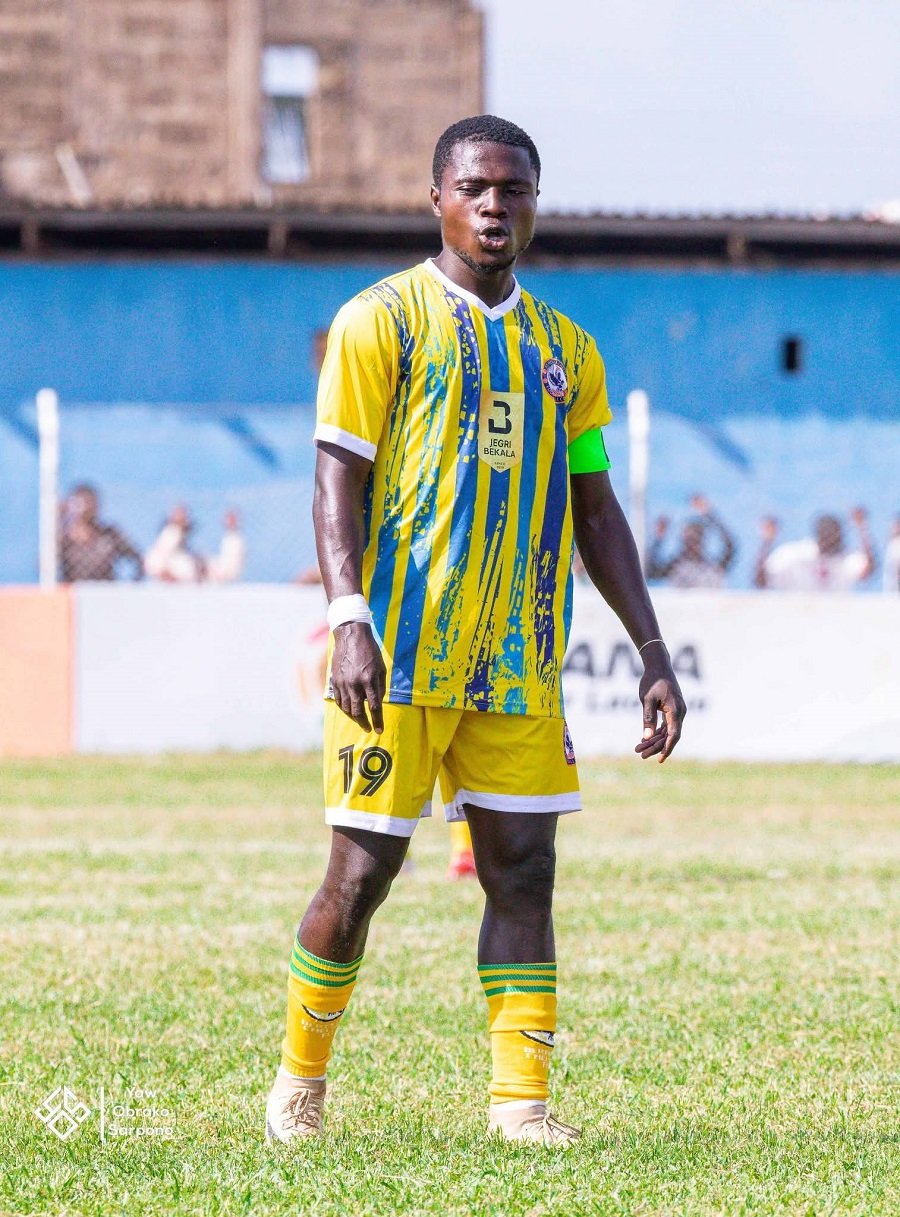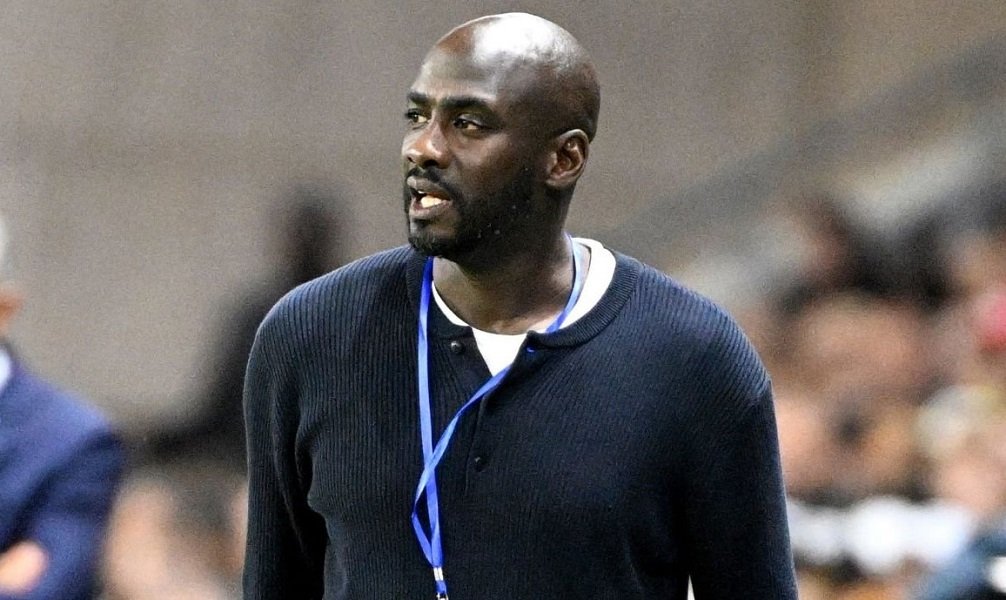Sports
Slave wages,threat to the local game!

Years back – some three or more decades ago, domestic football was a sheer delight – drawing thousands to fill the stands on match days.
Quality abound – and even though the players performed their act on relatively pitiably despicable pitches, some tantalizing football freely oozed out from the feet, carving out pretty patterns even to the blind eye.
Those were days when most of the players remained on home soil, not really enthusiastic on joining the ‘exodus bandwagon’ to seek greener pastures.
However, with the Ghanaian economy hitting a slump, especially in the 1980s, players began to file away in droves in the ‘90s as clubs could no longer afford the allowances and salaries of the playing body.
The domestic league was now beginning to suffer from quality play – and by extension poor patronage as empty seats stared in faces of the scanty fans around.
The already harsh situation was made even worse by the fans’ affection for foreign football to the detriment of the local game. None can totally blame the fans who have continuously explained off their decision to quality football in the English, Spanish, German and other elite games in Europe.
Lack of marquee, quality players has also culminated in Ghanaian clubs failing to win laurels in continental football for a long time.
Indeed, the last time a Ghanaian side annexed an African trophy was in 2004 when Hearts of Oak upstaged sworn rivals and fellow compatriots Asante Kotoko to win the CAF Confederation Cup. Kotoko themselves have not tasted African glory since 1983 – some 38 years ago, when they beat Al Ahly of Egypt to lift the African Clubs Championship crown (now CAF Champions League) for the second time.
Year-in-year-out, our players leave their clubs in midstream to clubs in less-endowed football countries that could only pay a notch higher than what they were taking back home.
Some elite clubs in Ghana pay as low as GH¢700 to GH¢2,000 to their top stars who would not shilly-shally to fly out abroad at the slightest opportunity.
President of the Sports Writers Association of Ghana [SWAG], Kwabena Yeboah, is not enthused about the wages of Ghanaian local players.
According to him, the base salary for Asante Kotoko player in the year 2021, for example, should be US$2,000 and not the range of GH¢1,000 to GH¢2,000.
In an interview with Accra-based Starr FM, the veteran broadcaster said the club needed to build the team and sustain the players for a period of five to six years and also attract players from outside the jurisdiction of Ghana, describing the salaries of the club’s players as ‘slave wages’ which must be improved.
“If you really want to attract the best material, you must pay very well. What we pay players right now in Ghana, for me in blunt language, are slave wages.
“You cannot pay a Kotoko player you want to make a mark in Africa, and consistently wins matches for you a GH¢1,000, GH¢2,000. It’s a joke. The least any Kotoko player deserves, especially the starting players, is US$2,000 because you have your players leaving for Benin, to other parts of Africa because they’ve been cajoled and lured by US$1,000 a month because they cannot receive that kind of money here; so they will definitely leave.
“If you want to compete, I’m saying that the starting base [salary] should be US$2,000 as you look to improving the amount. Until we start doing that, our players will continue to leave in numbers – and we’ll continue to mark time.”
The SWAG President’s assertion might sound unrealistic and impracticable to some club owners, but looking more intently, that is plain talk from the iconic broadcaster. Rather, he is being super realistic. Truth is that, things have changed and we cannot afford to do run affairs of our clubs the way we were doing some decades back.
Our local players have howled for far too long and it is high time club owners put their act together and see how best to plant some smiles on the faces of these actors as regards their remunerations and allowances.
Until that is done, expect our players to head off in droves – at the slightest opportunity – as they yearn for better living condition.
Sports
Chelsea Host Hearts in Berekum

Attention will be at the Golden City Park in Berekum tomorrow as Hearts of Oak lock horns with Berekum Chelsea FC in a Ghana Premier League Matchday 6 game that promises an electrifying atmosphere.
Lying sixth on the league table with two wins and three draws, the Phobians visit a ground that has been favourable to them in recent times. In their last three visits to the Golden City Park, Hearts have amassed seven out of nine points, putting them in strong contention to win.
Head Coach Mas-Ud Didi Dramani says, “The team is making progress in its tactical identity despite the lack of goals, and this is something we are working on ahead of this game.”
Hearts will come face-to-face with former coach Samuel Boadu, whose side lies a distant 13th on the league table with a win and a draw from four games. Coach Boadu is yet to celebrate a victory over the Phobians since joining the Berekum lads and would hope this fixture marks a turnaround.
Ninth-placed Vision FC would trek to the Nana Fosu Gyeabour Park in Bechem to play Bechem United, while new boys Hohoe United host Aduana FC at the Hohoe Sports Stadium.
Returnees Swedru All Blacks will welcome Basake Holy Stars to the Swedru Sports Stadium, with defending league champions Bibiani Gold Stars staying put at their backyard, the Dun’s Park, to welcome second-placed Heart of Lions FC on Monday.
Today at the TnA Stadium in Tarkwa, Medeama SC will clash with Samartex FC in a Western derby. Other games scheduled for today would see Eleven Wonders FC host Karela United at the Swedru Sports Stadium, while Dreams FC face Nations FC at the Tuba Astro Turf.
By Raymond Ackumey
Join our WhatsApp Channel now!
https://whatsapp.com/channel/0029VbBElzjInlqHhl1aTU27
Sports
How Otto Addo Turned Critics Into Fans (1)

Ghana coach Otto Addo may not command the kind of fear and respect like Pep Guardiola, Jose Mourinho, Carlo Ancelotti, Luis Enrique and others in the modern game, but in his small corner, he is gradually climbing the ladder to greatness in Ghana, Africa and the world at large.
The aforementioned coaches attained greatness with club sides and, therefore, open an argument over whether one is not comparing apples to oranges. But no matter how one looks at it, they are all coaches harbouring similar ambitions to attain greatness in their fields.
Otto Addo is one of the young and upcoming coaches holding a lot of promise and was getting experience with his association with Borussia Dortmund in Germany until his path was directed by a Ghana call.
Although he was born in Germany, Otto Addo’s association with Ghana football dates back to 1999, spanning a period of about seven years; commencing with a 5–0 rout of Eritrea on February 28. He gained international prominence when he joined the squad for the 2000 African Cup of Nations. He featured as a midfielder in the team for the 2006 FIFA World Cup.
But like it’s often said, a prophet is not recognised in his own home and his efforts partially went unnoticed. He’ll go into the annals as one of the Black Stars coaches to have been fairly or otherwise criticised not just by ‘football people’ but fans who doubted him.
His sack has been discussed at various platforms by people whose knowledge and tactical acumen about the game remains questionable. Ghana’s Minister for Sports and Recreation, Mr Kofi Adams, at one point openly stated his doubts over Otto Addo’s ability to actually deliver.
No coach would feel secured in such turbulent times, but coach Otto Addo kept his calm and composure. On the corridors of his employers, however, the Ghana Football Association (GFA) president, Kurt Okraku, openly rallied support for him, though a few ‘doubting Thomases’ still questioned his credentials.
That painted a picture of a people that forget easily and are quick to crucify. In a brief moment of adversity, Ghanaians forgot how Otto Addo was brought in to pluck qualification for the Qatar 2022 FIFA World Cup from the jaws of the Super Eagles of Nigeria with a solitary goal over two legs.
The upshot of that feat was not one any Nigerian would want to remember. The scenes after the match were awfully chaotic, as fans vented their anger on facilities at the stadium. Back in Ghana, it was partying all night and day.
Otto Addo was labeled the football magician. He achieved something no Ghanaian coach had ever accomplished; a feat which Ghana with her all-time best teams could not attain. That was the climax to which Otto Addo took Ghana football, generating calls to start believing in the Ghanaian coach.
Following that to the World Cup proper was another story altogether. It was, or may have been, our poorest show at any of the four World Cup appearances. And just as it was stipulated in his contract, he bowed out after the Qatar World Cup to mind his Borussia Dortmund business with peace.
But as fate would have it, nature found a way to renew his romance with Ghana football after an unconvincing start to the America, Canada and Mexico dream World Cup under special advisor turned coach, Chris Hughton.
Ghana started the qualifiers on a winning note but not a convincing performance. It was saved by an Inaki Williams goal scored on the sixth minute of additional time against Madagascar at the Baba Yara Sports Stadium. The Black Stars then slumped to a 1-0 defeat at the Stade de Moroni to Comoros to heighten calls for a new technical direction.
Then stepped in Otto Addo when Ghana occupied the fourth position in Group I with three points but with the countries in the group evenly matched.
By Andrew Nortey






